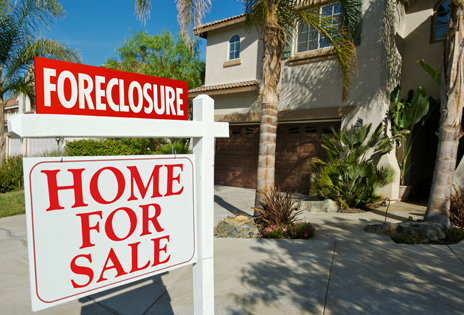LOS ANGELES CHAPTER 7 BANKRUPTCY ATTORNEY
What is Chapter 7 Bankruptcy?
Available to individuals, married couples, and businesses whether a sole proprietor, partnership, LLC, or corporation, Chapter 7 bankruptcy affords the debtor the individual , individuals, or business that owes money to another full and final relief from nearly all creditors some debts such as student loans, domestic support obligations, certain taxes, and criminal fines are not dischargeable. The purpose of a Chapter 7 bankruptcy is to discharge. A bankruptcy discharge releases the personal liability for one’s debts. Thus, you are no longer legally required to pay any debts that are discharged. The discharge is permanent and keeps creditors from taking any form of collection action. This includes legal action and all communications with the debtor. certain debts to give each debtor a “fresh start.”

After a discharge, the debtor has no liability for discharged debts and therefore no creditor an individual or business to which money or service is owed can ever try to collect on the discharged debt again. Because of this finality, Chapter 7 bankruptcy is an outstanding tool to help you quickly clear out your overwhelming debt and get the fresh start you deserve for your financial life.
However, Chapter 7 bankruptcy may not be right for you. Some debtors will need or want something beyond what can be done through filing a Chapter 7 bankruptcy. A Chapter 7 bankruptcy discharge does not extinguish a lien For instance, removing a judgment lien, a second mortgage on your home, a home equity line of credit, or an auto loan may not be removed by the discharge itself. At times, additional motions can be file to remove said liens or possibly you may be better off filing a Chapter 13 bankruptcy to deal with such issues. on real or personal property. Others may have assets that could be at risk of liquidation a process whereby the asset is sold and the proceeds are distributed to the creditors under a Chapter 7 bankruptcy. Each state has its own exemption laws exemptions are used to enable a person to keep an asset safe from creditors during a Chapter 7 filing but in general most will be able to fully protect any and all retirement accounts, their family home, furniture, clothing, jewelry, and vehicles.
Speak to your Wajda Law Group Chapter 7 Bankruptcy Attorney about which assets are protected under the laws in your state.
Lastly, we must determine if you qualify for Chapter 7 bankruptcy. Although there is no minimum or maximum limit on the amount of debt that can be discharged in a Chapter 7 bankruptcy, there are certain income limitations regarding eligibility for a fresh start under Chapter 7. Wajda Law Group has the experience to make this determination for you and can usually give you answer to whether you qualify for Chapter 7 bankruptcy during your free consultation. The first step in determining your qualification for a Chapter 7 bankruptcy is to calculate whether your household income is above the median level for your household size in your area. However, even if your household income exceeds this median, you may still qualify for a Chapter 7 fresh start.
When a debtor’s household income is greater than the median, the debtor must pass the means test A complicated formulaic test that balances your monthly household income against a combination of local and national expense standards intertwined with a debtor’s actual monthly expenses to determine whether there is enough disposable income to pay a minimum threshold amount to one’s creditors in order to qualify for the fresh start under Chapter 7.
At Wajda Law Group, we have the experience needed to navigate the means test on your behalf and get you the relief you deserve. To see if Chapter 7 bankruptcy is right for you, schedule your appointment for a free consultation with a Chapter 7 Bankruptcy Attorney in Los Angeles!
For a more detailed explanation of Chapter 7 bankruptcy, please visit http://www.uscourts.gov/FederalCourts/Bankruptcy/BankruptcyBasics/Chapter7.aspx
DO YOU THINK BANKRUPTCY MIGHT BE RIGHT FOR YOU?
Talk to us! We promise we can help you! Call Now! (877) 550-0003

Nicholas M. Wajda came highly recommend by Legal Zoom. After talking to him regarding my situation, I knew I could trust him. He listened and had a caring tone in his voice. My situation is now settled and I couldn't have done it without Nicholas Wajda help. I Highly recommend him. Ps. You can always get him on the phone. Great service.

It took a while to decide to file for bankruptcy. First I had a bad experience with an attorney who was incompetent. Once I found Mr. Wajda I knew I was in good hands. He was very polite and professional from the first time I called him. By the way he answers all his calls himself and returns calls promptly. He made everything go smoothly and in no time I got a discharge of my debts. I recommend him highly. Thank you Nick.

The best!!!! Very smooth transition the best of it was I was able to make monthly payments till I had it paid to start my BK-Chap 7 and then sent reminders to me for a payment what ever I was able to afford that month that helped me out so much that I was able to do the BK now When I would send a email with a question I got a fast response I just got my discharge and I'm very thankful to Michael for his understanding and for letting this entire ordeal be so smooth I highly recommend this firm
ARE YOU READY TO TAKE CONTROL OF YOUR DEBT AND MOVE TOWARD FINANCIAL INDEPENDENCE?

Chapter 13 bankruptcy is the second most common chapter for individuals. Chapter 13 permits a debtor to repay his or her debts over a period of three to five years. Chapter 13 bankruptcy can also be used to save a vehicle or a home if a debtor has fallen behind on payments. In certain situations, a Chapter 13 bankruptcy can even eliminate the junior mortgages on a property.
Contact us and we will work with you to determine what is right for you.
ESTATE PLANNING ENSURES THAT YOU AND YOUR FAMILY ARE PROTECTED.
LET'S GET STARTED PREPARING FOR YOUR FUTURE

An essential step in protecting you and your family’s future is to create an all-encompassing estate plan. Here at Wajda Law Group, we have the knowledge and experience to create such protection for you. Although discussing an estate plan is something most people do not want to think about, proper protections are necessary in nearly all situations, and planning early can save you and your loved ones valuable time and money in the future.
IT MIGHT BE TIME FOR YOU TO GET HELP.
WHEN SHOULD YOU HIRE A FORECLOSURE ATTORNEY?
When it comes to foreclosure, hiring an attorney early in the process helps ensure that you have more options available to you than what might be available later in the foreclosure process. For example, the lawyer can help you work out a deal with the lender that will allow you to stay in the home, or, if necessary, fight the foreclosure in court. If you wait too long, however, it might be too late to stop the process.

